2022 LibLearnX Wrap-Up
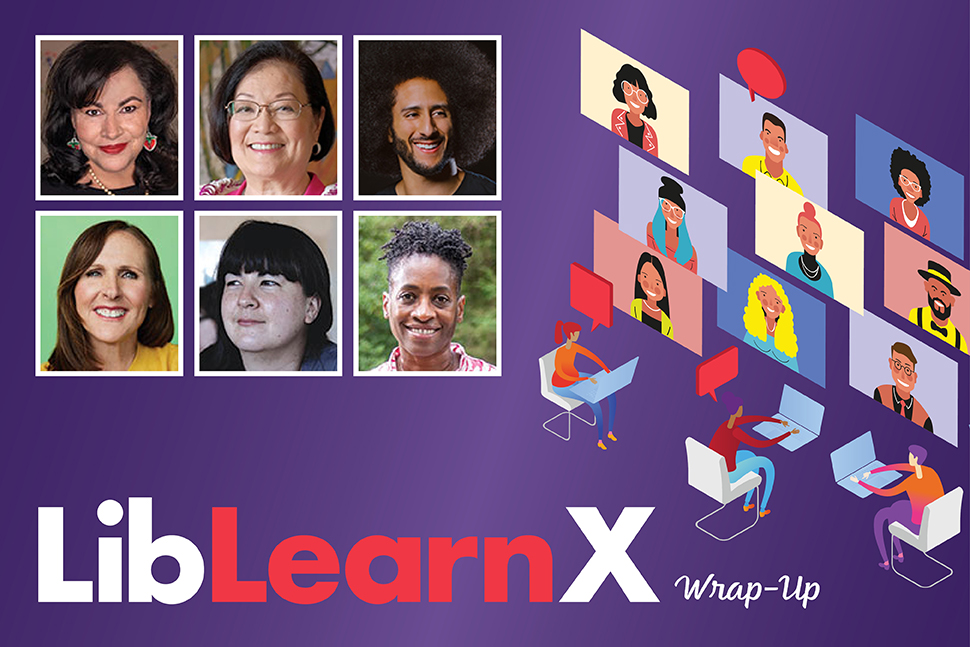
More than 2,100 people attended the American Library Association’s (ALA) inaugural LibLearnX virtual conference January 21–24. The format of LibLearnX is designed to motivate, inspire, and enable discussions that shape the future of libraries and communities, emphasizing active and applied learning in a variety of formats.
The lineup also included familiar ALA conference components: high-profile speakers, networking opportunities, and celebrations of libraries, books, and authors. Originally scheduled to be held in person in San Antonio, the conference shifted to an all-virtual format because of the ongoing COVID-19 pandemic.
Speakers get personal
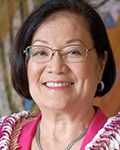
US Sen. Mazie K. Hirono (D-Hawaii) opened the conference in conversation with ALA President Patricia “Patty” M. Wong. Hirono talked about her memoir, Heart of Fire: An Immigrant Daughter’s Story (April 2021). “The more I experience so much of the divisiveness in our country and, in my view, the lack of appreciation for diversity, the more I’m very grateful that I represent Hawaii,” Hirono said. “I can’t think of a better state for my mother to have brought her children to begin a new life.”
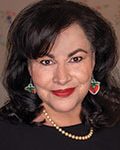
Angeline Boulley, author of the groundbreaking YA thriller Firekeeper’s Daughter (March 2021), talked about Indigenous representation and the power of perseverance. Boulley is a member of the Bear Clan from Sugar Island in Michigan’s Upper Peninsula, and her work is imbued with details from her own experience. “There are 574 federally recognized tribes, and each is so unique,” Boulley said. “We are not relics of the past. We’re still here and we have dynamic stories to tell.”

Actor and comedian Molly Shannon said she was thrilled to be asked to be honorary chair of this year’s National Library Week (April 3–9), noting that her late mother majored in library science. “It feels like a real tip of my hat to my mom and to all librarians, and it’s a real honor for me to get to do that. It’s such a special place in my heart,” said Shannon. She also talked about her forthcoming memoir, Hello, Molly! (April).
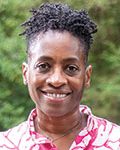
Bestselling author Jacqueline Woodson asked attendees to reflect on this moment of history. “None of us saw this coming,” she said of the COVID-19 pandemic. “One day we walked into our classrooms, we walked into our libraries, we walked into our jobs, and the next day we didn’t.” Woodson read from her new book, The Year We Learned to Fly (January), and talked about drawing inspiration from Virginia Hamilton’s 1985 collection of African-American folktales, The People Could Fly.
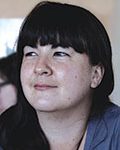
Bestselling author Mariko Tamaki’s work is acclaimed for depicting the complex inner lives, friendships, and coming-of-age stories of teens. Her latest book is Cold (February), a murder mystery YA novel—a departure from her previous work in graphic novels. Tamaki said that as she read and researched the genre, she discovered that the mystery format “plays really well into the things that I’m interested in writing about.”

In the closing session, athlete and activist Colin Kaepernick talked about how representation “is only a start” when it comes to combating injustice. He pointed to St. Louis County Library, where, in 2020, staffers organized to demand that the library cancel its private security contract and reallocate the money to hire social workers and provide de-escalation and restorative justice training. “These are the very types of interventions that can make a difference in signaling who is welcome and who belongs in libraries,” said Kaepernick. “I want you to know the value of your work cannot be understated; in fact, our lives and liberation depend on it.”
Reflections on the role of libraries
What are the obligations of a public or private university to its local and global community? A panel of two public librarians and one academic librarian discussed this question and others in “Curating for Inclusion: Redefining ‘Public’ in Academic and Municipal Libraries.” When asked about balancing the perhaps conflicting imperatives to safeguard special collections and keep materials accessible to the public, Boston Public Library Director David Leonard highlighted opportunities for synergy. “Why not take something like our map collection and [make that] primary source material for a secondary educational curriculum? What if we could do that with all our historical collections as a way of engaging with the public?”
Tejas Desai and Kacper Jarecki of Queens (N.Y.) Public Library shared how libraries can do more to support independent and self-published authors—such as holding book festivals featuring their work or including more of their titles on shelves—in “Supporting Indie Authors.” Desai and Jarecki discussed how libraries can be a lifeline for these authors and their readers. “We’re firmly committed to the idea that everyone has a story,” Desai said.
In the session “Trauma in the Library,” University of Washington iSchool professor Karen Fisher and research manager Lauren Alexa Gambrill presented the preliminary findings of their Institute of Museum and Library Services–funded study “Trauma in the Library: Symptoms of PTSD Among Staff and Methods for Ensuring Trauma-Informed Care.” They hope this research can improve support of library workers’ mental health.
“Being a Queer Librarian in Texas: Expectation vs. Reality,” presented by ALA’s Rainbow Round Table, asked attendees to focus on Texas, a recent backdrop for legislator-led book challenges targeting LGBTQIA+ experiences, among other subjects. “I am an immigrant, formerly undocumented, gay man,” said Israel Favela, collection development and cataloging manager for the city of Houston. “I’ve been very lucky; I’ve always had an out librarian somewhere that I could go to for advice. I just want to encourage everybody to be that for someone else.”
Action-based instruction
How do you address low morale at your organization? What can you do to foster more diversity, equity, and inclusion (DEI) when it comes to recruitment and retention? In “3 Reasons Your DEI Programs Are Not Working,” author and consultant Elaina Norlin presented research and anecdotes from her experience with these issues and suggested attendees look at three key areas within their institutions: organizational climate, norms, and culture.
In “Raise Up Radio: Connecting Families, Libraries, and Radio for Educational Equity,” speakers shared details about the early stages of the Raise Up Radio project. The initiative aims to address educational inequities faced by residents of rural areas, with a particular focus on STEM education. During the pandemic, “a lot of folks in rural areas were being cut off or cut out of [remote learning],” said presenter Lance Simpson, research and instructional services librarian at University of Alabama in Tuscaloosa.
In the session “Advancing Race and Social Equity in Library Communications,” three members of Prince George’s County (Md.) Memorial Library System discussed the library’s ongoing antiracism and social equity work. The long-term goal, said Nicholas A. Brown, chief operating officer for communication and outreach, is to be a better library system internally as well as externally, as populations and societies are changing, “and as we are collectively grappling with some of the systemic issues that have existed on these lands for hundreds of years.”
Celebrations and awards
ALA presented its annual I Love My Librarian Awards in a livestreamed ceremony on January 22. The awards honor 10 librarians every year for outstanding service. This year’s recipients include three academic librarians, three school librarians, and four public librarians, including one prison librarian. “These 10 honorees are inspiring examples of what is possible in our profession,” said Wong in her opening remarks.
On January 23, the Reference and User Services Association (RUSA) Book and Media Awards Ceremony announced the year’s best in fiction, nonfiction, poetry, audiobook narration, and reference materials, as well as the Andrew Carnegie Medals for Excellence in Fiction and Nonfiction. ALA selected The Thousand Crimes of Ming Tsu (June 2021) by Tom Lin as the winner of the Carnegie Medal for Excellence in Fiction and A Little Devil in America: Notes in Praise of Black Performance (March 2021) by Hanif Abdurraqib as the winner for nonfiction.
![]()
![]()
During the Youth Media Awards on January 24, ALA announced more than 20 awards recognizing outstanding books, videos, and other materials for children and teens, including the Newbery and Caldecott medals and the Coretta Scott King, Michael L. Printz, Pura Belpré, Stonewall, and Schneider Family awards. The Last Cuentista (October 2021) by Donna Barba Higuera is the 2022 Newbery Medal winner. Watercress (March 2021), illustrated by Jason Chin, is the 2022 Caldecott Medal winner.
The 23rd annual Martin Luther King Jr. Holiday Observance and Sunrise Celebration took its theme from King’s 1957 speech “Give Us the Ballot—We Will Transform the South.” Now, 65 years later, recent attempts to restrict voting access have succeeded in many states. ALA Executive Director Tracie D. Hall delivered the call to action. Citing author and activist Grace Lee Boggs, Hall said we must all take responsibility for improving society: “We are responsible for creating that sense of belonging that leads to deep systemic change.”
Source of Article